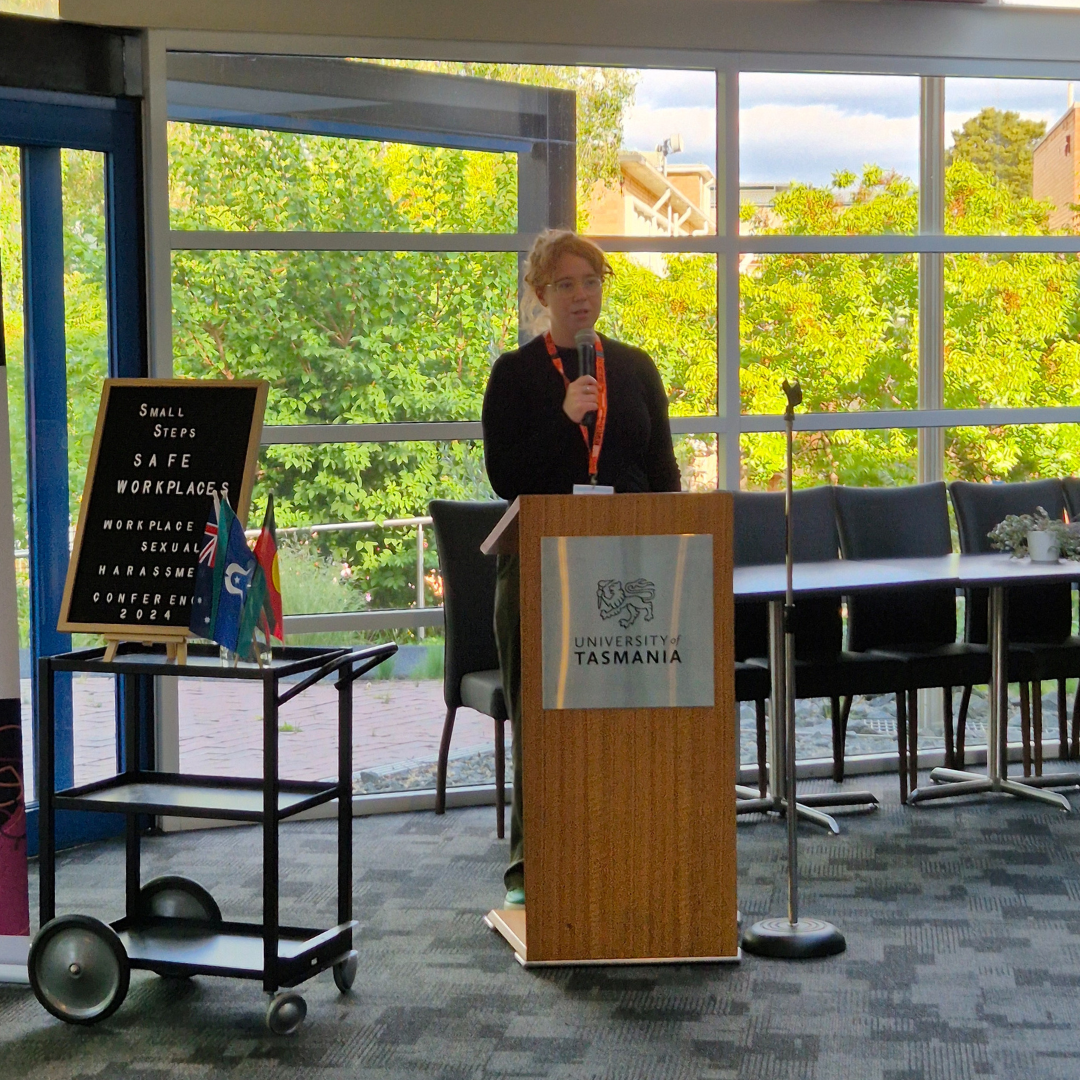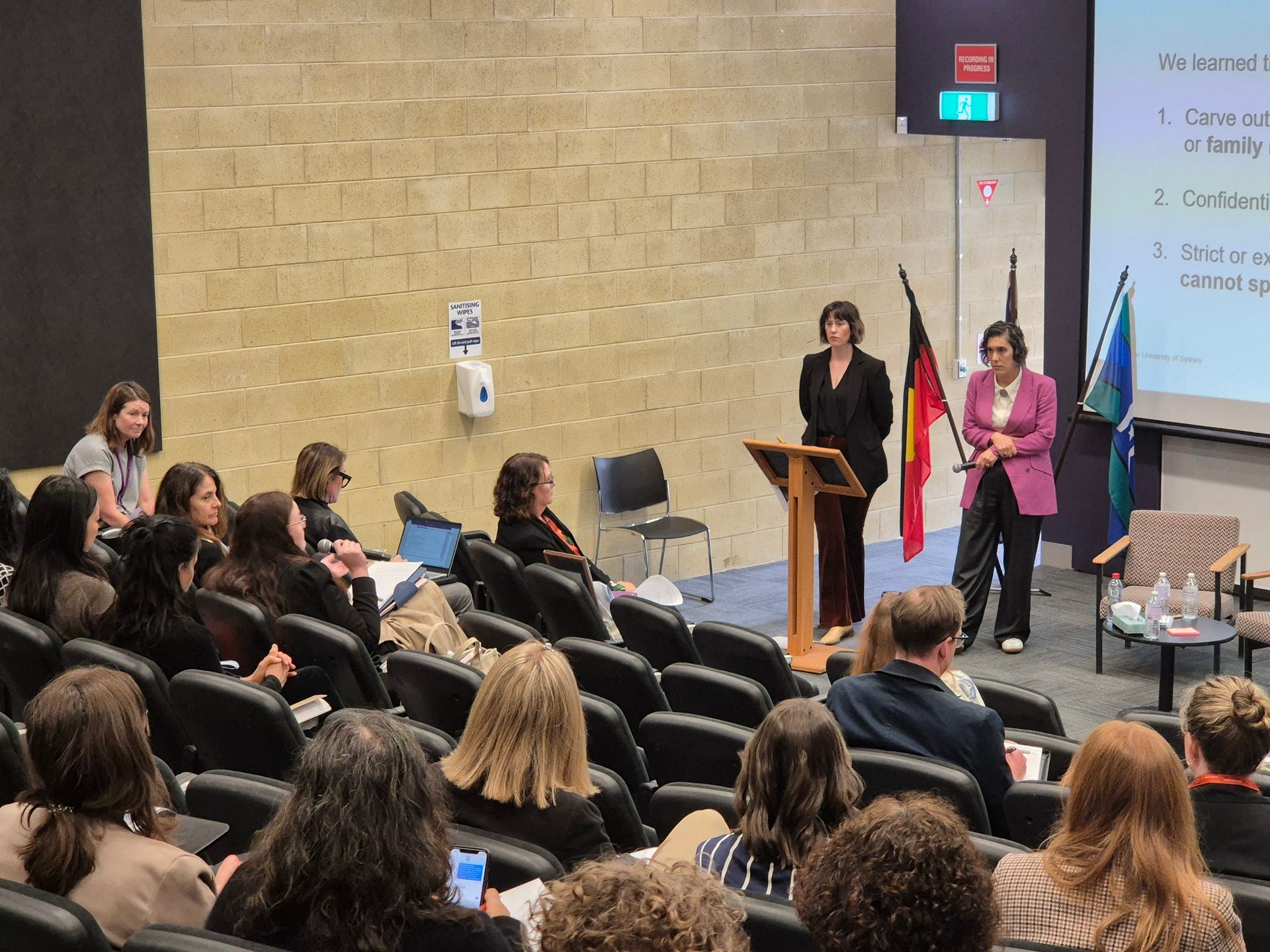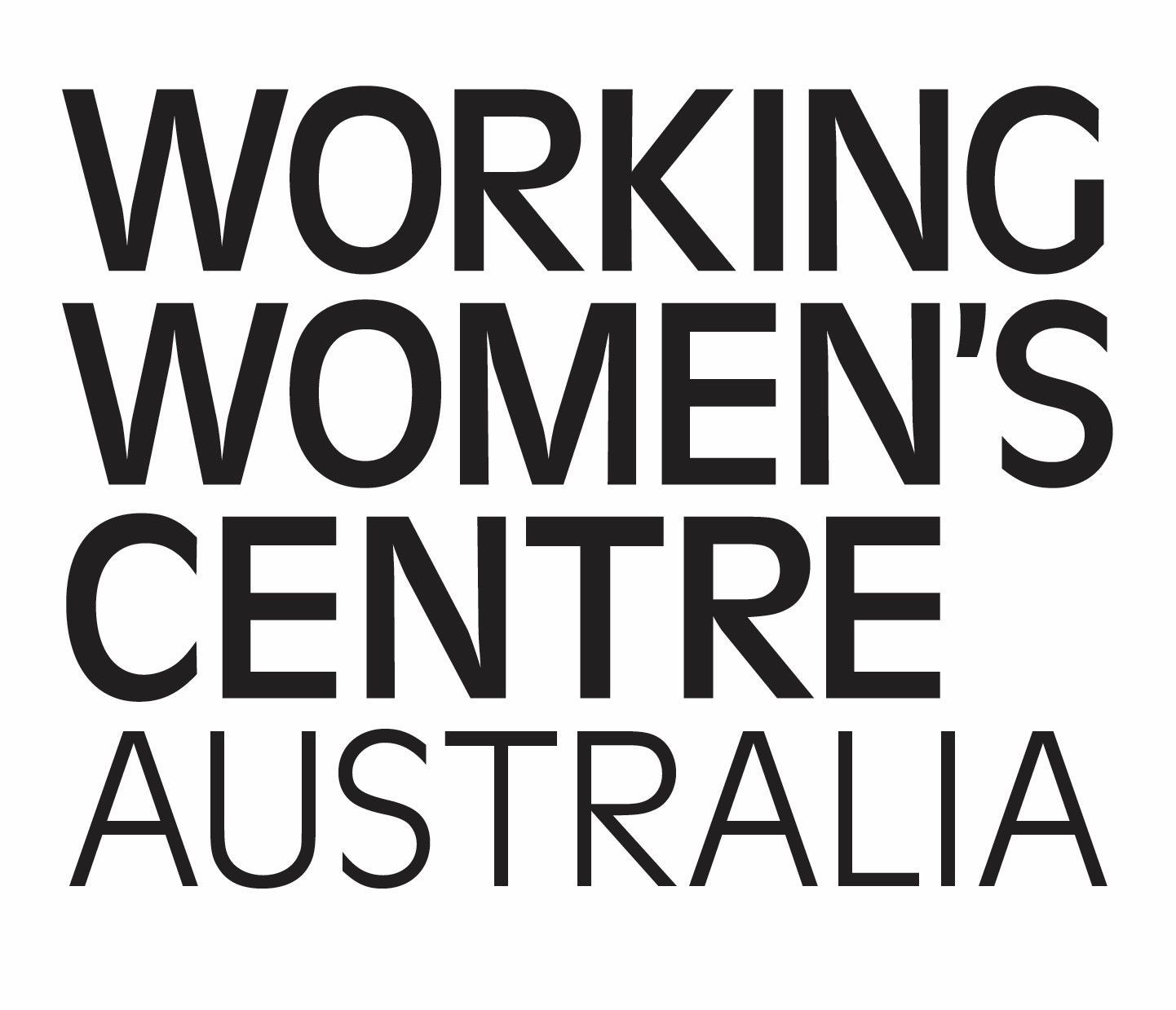Insights from the Small Steps, Safe Workplaces Conference in Hobart
The Working Women’s Centre Australia (WWCA) joined forces with leading voices at the Small Steps, Safe Workplaces - Sexual Harassment Conference, held on 14–15 November in Hobart, Tasmania.
Hosted by the Women’s Legal Service Tasmania, the event brought together industry experts, advocates, and policymakers to address workplace sexual harassment, its prevention, and support for victim-survivors.
A Platform for Progress
Over two days, the conference provided a vital space for collaboration, with keynote speeches delivered by Dr Anna Cody, Federal Sex Discrimination Commissioner; Ms Kate Eastman AM SC; and the Honourable Justice Turnbull. Discussions spanned trauma-informed legal practices, cultural safety in workplaces, updates on sexual harassment laws, and unique challenges faced by marginalised groups, such as sex workers. Andrew Mitchell from Scarlet Alliance led one of the panels addressing these issues.
Abbey Kendall, Chief Executive Officer of Working Women’s Centre Australia, presented The Rollout of WWCs Across the Country and emphasised the importance of the expanding network of Working Women’s Centres nationally. Highlighting the Albanese government’s funding Centres across the country, Kendall described this as a transformative moment in the movement’s history, with Working Women’s Centres now operating in every state and territory.

"This expansion draws from decades of collective expertise from Working Women's Centres, Women’s Legal Services, community legal centres, and trade unions. Together, we are building stronger, feminist-led Centres to address systemic workplace inequities." Kendall said, highlighting the collaborative effort driving this significant progress.

Challenging the Silence: A Spotlight on NDAs
One of the conference's standout sessions featured the presentation of the Let’s Talk About Confidentiality report by Regina Featherstone from the Human Rights Law Centre and Sharmilla Bargon from WWC NSW. Released in April this year, their research examined the misuse of Non-Disclosure Agreements (NDAs) in workplace sexual harassment settlements, uncovering deeply concerning findings:
- A majority of NDAs impose strict confidentiality, silencing victim-survivors from even sharing experiences with their families or medical practitioners.
- Lawyers negotiating these agreements often fail to offer alternative terms, perpetuating a culture of silence.
- Defamation risks compound the chilling effect, with damages in defamation cases often surpassing those in sexual harassment settlements.
The session underscored the urgent need for reform and a firm commitment to addressing NDA misuse.
“NDAs hinder transparency, prevent accountability, and retraumatise victim-survivors. It’s time for legislative reform to ensure victim-survivors are protected, not silenced,” said the keynote speakers.
Building Momentum for Change
WWCA is advocating for national law reform when it comes to the misuse of NDAs. NDA national law reform is another way we can dismantle systemic barriers to justice and create safer, harassment-free workplaces.
Abbey Kendall stated that "There are clearly times where NDAs can be helpful and even powerful for victim/survivors, and those are generally the times when the victim/survivor wants one. As always, the issue is nuanced. It is important to recognise that NDAs can be essential to the healing and closure of survivors/victims’ complaints.
It can’t be a blanket ban, but we can seek law reform and change that preserves the right of a women to negotiate an NDA and at the same time, ends the weaponization of NDAs.
The conference highlighted the importance of collaboration across sectors, uniting legal professionals, community advocates, and policymakers. It also served as a launchpad for WWCA’s national advocacy strategy, which focuses on policy reform, education, and community engagement.
The event concluded with a call to action, reminding attendees that workplace safety and gender equity are collective responsibilities. As Kendall emphasised:
"We will be working with victim-survivors, Working Women’s Centres from across the country, our community legal service and trade union colleagues, the Australian Government, and other parliamentary representatives to make this change. It’s important change, simple change, and overdue change—let’s get it done."
The Small Steps, Safe Workplaces - Sexual Harassment Conference reaffirmed the power of shared knowledge and advocacy in driving meaningful change for workplaces across Australia.
Working Women's Centre Australia
Phone: (08) 8410 6499
Hours: 9am-5pm, Monday to Friday
Address: Level 2, 81 Flinders Street- Adelaide SA 5000
For support with work-related concerns, please reach out to the Working Women's Centre in your state or territory.

We acknowledge the Kaurna people as the traditional and continuing custodians of the land on which we work, along with the First Peoples language groups and communities across Australia. We pay our respects to Elders past and present. First Nations sovereignty has never been ceded; this always was and always will be Aboriginal land.
The Working Women’s Centre Australia understands the term ‘working women’ mean all women (this includes cis and trans women) and non-binary people (this includes people who are gender diverse, gender fluid, masculine or feminine) who meet our service eligibility criteria.
Funded by:

The information contained in this website is intended as a general guide only. It is not intended as a substitute for legal/industrial advice. Employment laws change regularly and often differ from state to state. We recommend that you contact one of our experienced industrial officers at the Working Women's Centre in your State or Territory for further information.


